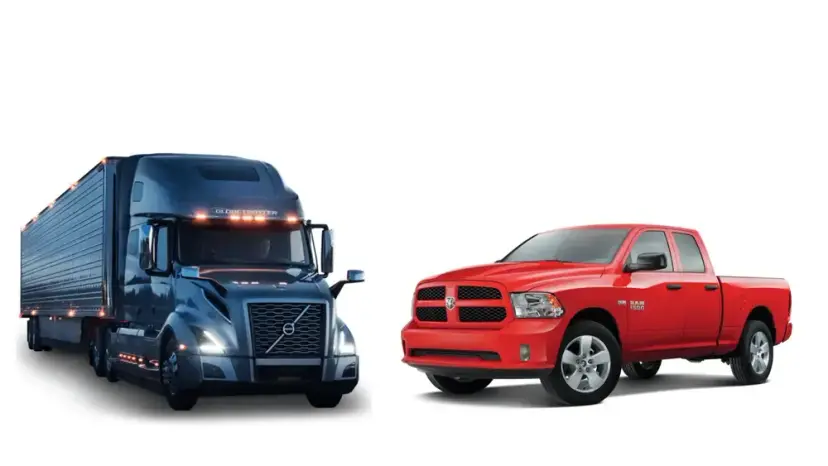Kelley Blue Book states, “pickup trucks and SUVs retain the strongest resale values of any vehicle type,” which makes these great choices for both buyers and sellers. Trucks are a top pick for utility vehicles due to their towing capabilities, and make great daily drivers too. Rural areas often have a high demand for trucks with four-wheel drive since they’re excellent for navigating rough terrain.
Selling a truck is a little different than selling a car or SUV because they’re geared toward people with different needs. Read on to learn how to market your truck effectively and prevent unpleasant surprises along the way.
Steps When Selling a Car Privately
Steps to take when selling a truck:
Trucks are the vehicle of choice for messy jobs and often get dirtier than the average car. Detailing trucks is different from cleaning a car since they have extra surfaces that don’t exist in a sedan (like truck beds and mud flaps).
Truck bed
Take a broom and sweep out any leaves or other loose debris in the back of the truck, then use a garden hose or pressure washer to loosen caked-on mud. After this, make a diluted mixture of car washing detergent (blue dawn dish liquid works great too!) and use a scrub brush to get up any remaining spots.

Mudflaps
It’s not often you pay attention to your mud flaps, but if you’re thinking of selling don’t leave these out when cleaning your vehicle. Use an all-purpose detailing cleaner and a long-handled brush to scrub the flaps, then rinse. Next, apply a rubber dressing solution to restore them to a like-new appearance!
Floor mats
Shake off any dirt and then use a vacuum attachment to suck up any caked in dirt. Carpeted mats can be cleaned in the washing machine using any standard detergent.
Interior carpet and fabric
Shampooing your truck’s interior is an easy way to make it look newer, particularly if you live somewhere that red mud is prevalent. A professional detailing will run you about $60. Alternatively, you can DIY this with carpet cleaning solution and a wet/dry vacuum.
No shop vac? Lather cleaner into the fibers with a scrub brush, then press towels into the carpet/fabric until completely dry. Keep in mind this method will take a while. You must remove any remaining liquid since residual moisture will cause a lingering mildew odor and mold.
Freshen up
Speaking of lingering smells—use fragrance sprays or vent clips to freshen up your old truck, especially if you’re a smoker. According to one website, lighting up in your truck is one of the quickest ways to lower the resale value.
Gather maintenance paperwork and service receipts
Gather maintenance paperwork and service receipts
Paperwork you should keep:
- Receipts from oil changes
- Automotive work
- Bodywork
- Tire replacement
- Filter changes
- Bill of sale from the original purchase
Make some inexpensive upgrades
- Consider buying a new bed liner if yours is scratched and showing signs of wear. On a budget? Opt for a less expensive spray-in liner.
- Fix small issues like broken tailgate latches, faulty window motors, and damaged mirrors.
- Replace dead or dim headlights and interior light bulbs.
- Restoring “foggy” headlight covers is a quick and inexpensive way to improve your truck’s appearance. Check out this list of the top-rated headlight restoration kits you can use at home.
- Pop-out small dings and paint over small scratches with touch-up paint. Use caution when DIYing this, sometimes you can make matters worse if you don’t know what you’re doing.
- Change spark plugs and replace or repair worn or “squealing” belts.
- Replace an unreliable battery or alternator. This is a little more expensive than other fixes on this list, but it’s so worth it if your ignition doesn’t always want to “turn over”. If the truck doesn’t want to crank when a prospective buyer comes to test drive, your odds of closing the deal are slim. Check with your local auto salvage yards to see if they have any gently-used batteries or alternators compatible with your vehicle.
Decide what you want to include with the truck
Determine what accessories you want to keep and what you want to sell with the truck. Do you want to keep the toolbox attachment, or are you okay with parting with it?
Many prospective truck buyers look for this sort of thing when shopping around. Don’t forget to remove any tools from the box if you do choose to part with it.
If you upgraded the standard wheels to specialty or mud tires, decide if they’re worth saving or not–you can always put the standard set back on as long as the tread is still decent and they aren’t damaged from being left out in the elements.
If you decide to make it a package deal, tack on the depreciated cost of the tires on the price tag. Keep in mind you may get more money by selling mud tires and other specialty accessories individually.
Make sure you’re selling In the right place
A lot of people find joy in customizing their personal vehicles but what’s “in-style” can differ drastically from one area to another.
Half of all new car buyers request customizations to their vehicle at the time of purchase: this can be anything from window tinting to lift kits. While these mods may be awesome to you, they might not be to prospective buyers.
If you’ve modified your vehicle, you may want to resell on a platform that specializes in altered vehicles. Generally, modifications like lifted suspension, hydraulics, and brightly colored paint jobs, can not only lower the resale value but may even void the manufacturer’s warranty.
Draft a successful ad
Creating an effective sales ad is simple as long as you hit the important talking points. Use the vehicle’s make, model, and year in the title section—this allows casual browsers to know what they’re looking at from a glance.
Steer clear of sales pitches and taglines, these add no additional information and can turn buyers off. In the main portion of your ad, mention the truck’s weight capacity/ limits, towing capabilities, 4WD, cab size, warranty info, and any aftermarket additions.
Does your truck get good gas mileage? Talk about it! There’s a huge market for fuel-efficient trucks.
Discuss why you’re selling your truck. Do you want an upgrade? Need a family car for your growing family? Looking for something with better gas mileage? Talking about what makes you want to sell can put buyers at ease and reassure them there’s no major problems with the vehicle.
Be truthful in your advertisement. Mention if your truck needs tires or has a finicky window. Your prospective buyers will appreciate your transparency and make them more comfortable with purchasing from you.
Lastly, set your price and negotiation terms. Is your price flexible or firm? Are you taking reasonable offers? Keep in mind that allowing some wiggle room in the price may help you close the deal faster.
Check your state’s emissions testing requirements
Check your state’s emissions testing requirements
More and more states are enforcing air quality standards and regulating the emissions allowed from passenger vehicles. California, Pennsylvania, Connecticut, Delaware, New York, and Massachusetts, are just a few states that have statewide vehicle emissions regulations.
Many states require a biennial inspection for vehicles over 5 years. In addition to the regular inspections, some states require a current smog report before a used vehicle can be resold. Unsure of your area’s laws? Check out this comprehensive list of cities and states with air quality ordinances.
See if you need active insurance coverage before selling
See if you need active insurance coverage before selling

Order a vehicle history report for those interested
Order a vehicle history report for those interested
Providing a vehicle history report is an excellent way to build rapport with prospective buyers. Discussing past accidents may seem counterintuitive, but transparency about your truck’s history will often put an interested buyer at ease, and increase the likelihood they’ll follow through with the sale.
A vehicle report includes:
- data regarding when and where the vehicle was purchased
- history of traffic accidents
- Information about former owners
- title-branding info
- lien info
- maintenance/repair records
- if the vehicle has been reported stolen
The two most popular websites to order a report are Carfax and Autochecker, both of which offer paid services. There are some free version websites but these are largely unreliable. To order a report you’ll need your Vehicle Information Number (VIN) and a debit or major credit card handy.
Interested in selling your truck with no hassle? Try PrivateAuto.
PrivateAuto makes it easy to sell your truck privately and close the sale on your own.


